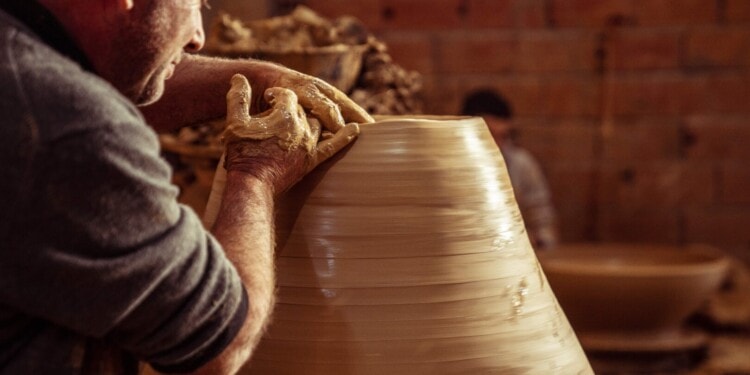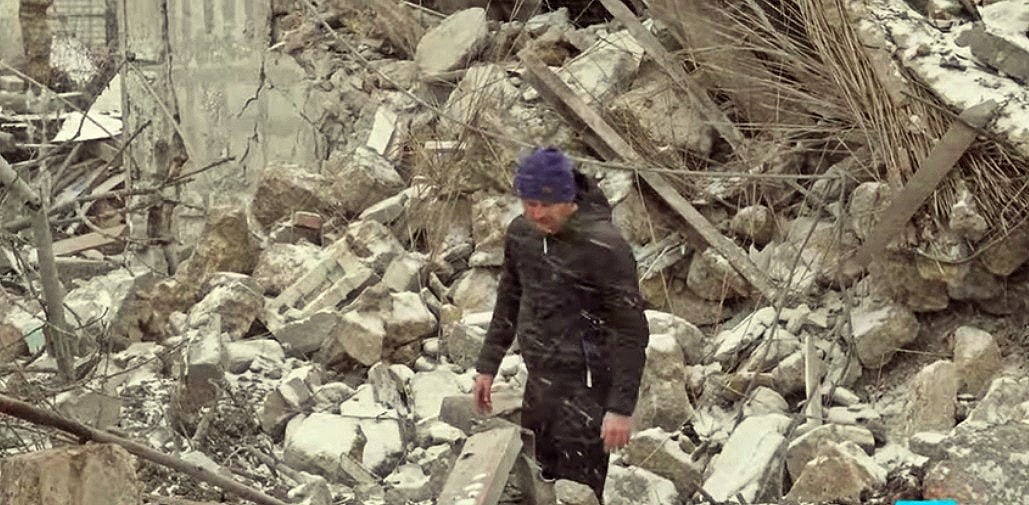The year 2021 was declared the International Year of Creative Economy for Sustainable Development at the 74th United Nations Assembly. The creative economy is one of the most rapidly growing sectors of the world economy, contributing 3% of the global GDP. It also possesses the transformative impact on income generation, job creation and export earnings.
Cultural and creative industries are major drivers of economies by capitalising $2,250 billion and creating 29.5 million jobs globally. Creative industries anchors in people-centred value and builds on cultural heritage and creativity. It is considered one of the effective means to achieve sustainable and inclusive development, build resilience in local economies, and contribute to the 2030 Agenda and its Sustainable Development Goals (SDGs).
Creative Industries for Improving the Livelihoods of the most Vulnerable
According to data from the World Bank, female labour force participation rate fell from 51% in 2000 to 45.92% in 2020 globally. International Labour Organisation (ILO)’s data observes a population of 267 million young people who were not in education, employment or training in 2020. By the end of 2020, 82.4 million people were forcibly displaced according to UNCHR. Many more similar reports and data are sending alarming signals of the rising level of global inequalities.
A few features of creative industries determine its effectiveness in addressing the above-mentioned matter. Firstly, the practitioners of creative industries are often young people, women and migrants. Secondly, creative industries allow businesses to start with relatively limited investments compared to other industries, as there may not be a need for medium to largescale industrial infrastructure. In addition to the comparable ease with which the vulnerable groups can participate in creative industries, the fact that cultural heritage and creativity are significantly valued in the industries can act as a communal support to the most vulnerable.
UNIDO has been providing technical and entrepreneurial skills development, supporting with formalization procedure, assisting women cooperatives and establishing creative hubs to develop local creative industries.
Creative Industries in Supporting Rural Economic Development
Rural areas are home to most of the poor – 88 percent of the extremely poor live in rural areas, and nearly 20% of people employed in rural areas live in extreme poverty. The gaps between urban and rural areas also manifest in access to opportunities and basic services. Creative industries have the potential to play an important role in bridging this gap, for it recognises and transforms cultural heritage, a resource often abundant in rural areas.
Related Articles: Investing in technical skills of young men and women for poverty alleviation | Refugee Inclusion: Technical Education for the Displaced
Through technology transfer, innovation and tailor-made capacity building, UNIDO supports Micro, Small and Medium Enterprises (MSMEs), entrepreneurs and cooperatives in rural communities to apply modern design tools and develop new products based on the local cultural traditions. By supporting also service providers and bringing expertise together, UNIDO strengthens the overall ecosystem for creative industries in rural areas. Finally, UNIDO also supports the creative industries in reaching new markets, local and well as international, in order to support the growth of the MSMEs and support the rural economic development.
Creative Industries in Industrial Design and Branding for Sustainable Growth
For SMEs active in creative industries, industrial design and branding are key drivers of distinctiveness and creativity. Industrial design contributes to preserving local identity and know-how, builds business success and leads to a better life quality. Branding becomes a powerful marketing tool for improved business resilience through robust digital presence.
UNIDO helps countries and industries maximise their value-added and sustainability. From the adoption of industrial design, umbrella branding, e-marketing tools, to equipping specialists with relevant skills in digital design, product development, brand management and marketing, UNIDO focuses on strengthening productivity, competitiveness, and human resources of manufacturers, SMEs and cooperatives. Amid the CONVID-19 pandemic, industrial design and branding reconcile digitalisation with economic recovery through customised solutions.
Building Skills for Creative Industries
The creative industries sector has a potential over-supply of new entrants, nonetheless, they face challenges caused by skills shortages. A brief on Skills for the Creative Industries by Confederation of British Industry (CBI) identifies two key factors attributing to skills shortages within the creative industries: changes in the global skills environment and domestic shortages of individuals with the right skills sets. Due to a globalised market and technological advances, some creative sub-sectors have felt the impact of global shifts in production and distribution. And creative industries, like other industries across the local economy, are experiencing a shortage of skilled staff – STEM skilled staff, for example.

There is, therefore, an urgent need to ensure the creative industries sector has access to a pool of talented people with the right skills and abilities. Governments and international organisations should support employers to develop the abilities and to up-skill the current workforce. Technical and Vocational Education and Training (TVET) should be promoted to develop up-to-date knowledge and to train skills through various accessible programmes.
The Learning and Knowledge Development Facility (LKDF) by UNIDO is a platform that promotes demand-oriented skills development programmes for young people in emerging economies to achieve inclusive and sustainable industrial development. The LKDF assists on industrial skills building though public and private development partnerships (PPDPs).
UNIDO Practices in Creative Industries: Examples
- Creative Tunisia;
- Creative Mediterranean;
- Strengthening job creation and creativity in the agro-food sector in Lebanon through technology transfer and skills training.
- Iran Creative hubs: https://irancreativehubs.com/hubs/
- Creative Hub Ethiopia: https://creativehub.et/
Editor’s Note: The opinions expressed here by Impakter.com columnists are their own, not those of Impakter.com In the Featured Photo: A sculptor working. Featured Photo Credit: UNIDO.









